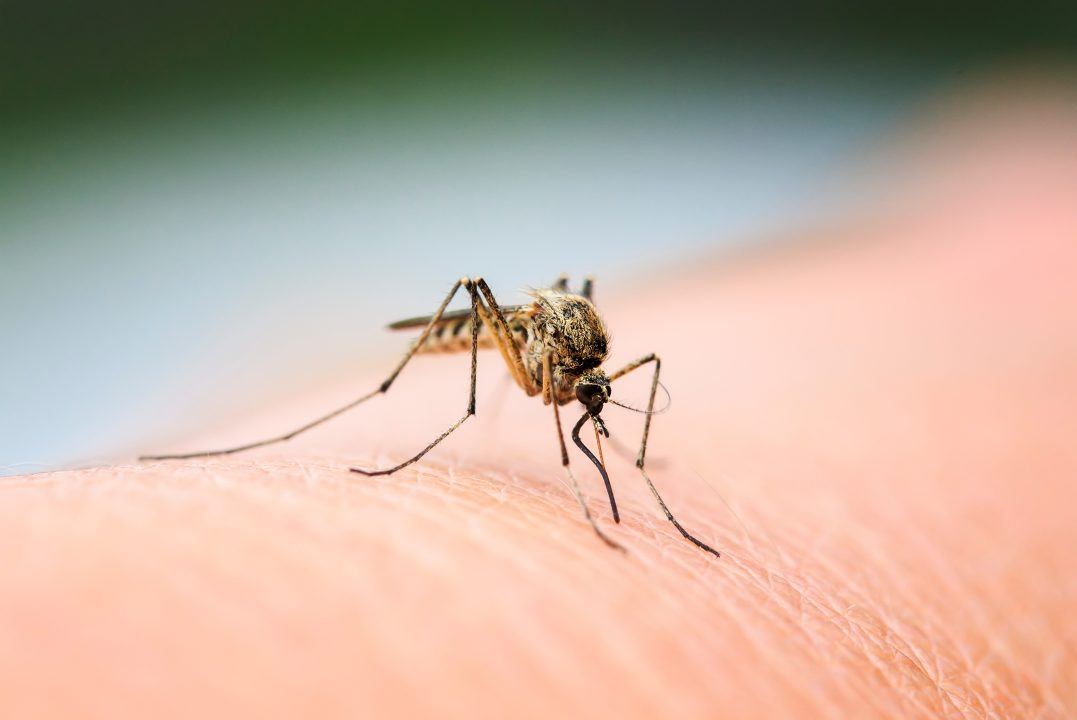Health officials have urged people to take precautions against mosquito bites while on holiday amid a rise in cases of chikungunya among travellers returning from abroad.
The UK Health Security Agency (UKHSA) has also detected the first cases of the emerging disease oropouche virus in the UK, all of which were linked to travel from Brazil.
Chikungunya is a virus spread by mosquito bites, the symptoms of which include a sudden fever and joint pain.
According to UKHSA, most people recover within two weeks, although the joint pain can last for months or even years in some cases.
Serious complications are not common, but in rare cases the disease can be fatal, particularly in very young or older people, or those with underlying health conditions.
The latest travel-associated infections report from UKHSA shows there were 73 cases of chikungunya reported between January and June 2025, compared to 27 cases for the same period last year.
The majority were linked to travel to Sri Lanka, India and Mauritius.
All cases were reported in England, primarily in London.
There is currently no risk of onward transmission of chikungunya, as the two species of mosquito that transmit the disease are not established in the UK, UKHSA said.
The illness mainly occurs in Africa and Asia, specifically southern Asia, although cases have been reported in Europe and parts of North America.
However, this year there have been outbreaks in the Americas and Asia, with surges in China and the Indian Ocean islands of Reunion, Mayotte and Mauritius.
Dr Philip Veal, consultant in public health at UKHSA, said: “Chikungunya can be a nasty disease and we’re seeing a worrying increase in cases among travellers returning to the UK.
“While this mosquito-borne infection is rarely fatal, it can cause severe joint and muscle pain, headaches, sensitivity to light and skin rashes. Thankfully symptoms usually improve within a few weeks, but joint pain may last for months or longer.
“It is essential to take precautions against mosquito bites when travelling.
“Simple steps, such as using insect repellent, covering up your skin and sleeping under insecticide-treated bed nets can greatly reduce the risk.”
Two chikungunya vaccines are approved for use in the UK and are available to buy after an assessment at a private travel clinic.
Meanwhile, the first UK cases of oropouche virus, which is spread by midge bites, have been detected by UKHSA.
The three cases were all associated with travel to Brazil.
The flu-like illness can cause a fever, headaches, joint pain, muscle pain, chills, nausea and vomiting.
Officials urged anyone who becomes unwell with these symptoms after travel to affected areas, including parts of Central and South America and the Caribbean, to seek urgent medical advice.
According to the World Health Organisation (WHO), before late 2023, oropouche virus was mostly reported near the Amazon rainforest area.
However, in 2024, Brazil, Bolivia, Colombia, Cuba, Guyana, Peru and the Dominican Republic reported locally transmitted cases of the disease.
The UKHSA report also shows a rise in travel-associated cholera cases in the UK, with eight cases in the first half of the year compared to just one in 2024.
Most cases were linked with travel to India and Ethiopia.
There was also a 67% decrease in the number of dengue cases reported in England, Wales and Northern Ireland from January to June, and there were just four cases of zika virus during the period, down from nine in 2024.
Follow STV News on WhatsApp
Scan the QR code on your mobile device for all the latest news from around the country


 Adobe Stock
Adobe Stock

























